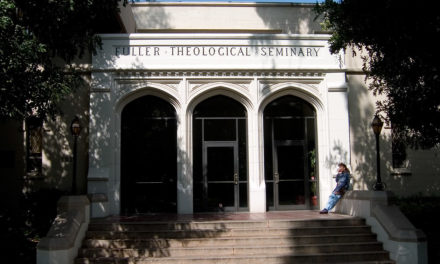The Issue
Family is the fundamental building block of all human civilizations, and marriage is the foundation of the family. The institution of marriage is unquestionably good for individuals and society, and the health of our culture is intimately linked to the health and well-being of marriage. Unfortunately, the standard of lifelong, traditional marriage as the foundation of family life in our nation is under attack.
Battered by high rates of divorce and cohabitation, unwed child-bearing and the push for so-called same-sex “marriage” and civil unions, marriage is in a state of crisis. Recent cultural changes without historical precedent have influenced an increasing number of Americans to view this fundamental institution as optional, disposable and open to redefinition. In this context of marital decline, political and ideological battles rage between those who view marriage as a transient human invention – ready for updating and revision – and those who regard marriage as natural and fundamental to humanity – essential to a flourishing civilization.
When one considers the social structure of civilization, family is clearly the foundational unit upon which church and government rest. Families are created and held together by the lifelong commitment of a man and a woman who live cooperatively and raise and nurture the children born to them. Families are the building blocks essential to the formation of a community, and strong social structure arises from the foundation many families provide.
Not only is marriage vital to society, the benefits of marriage for individual adults and children are well-documented. In general, married people live longer, spend less time in the hospital, have higher incomes and enjoy greater emotional support. Children raised by their mother and father are less likely to live in poverty or drop out of school and are more likely to finish college. They are also at lower risk for becoming sexually active in their teen years.
This beneficial, cohesive family unit, however, faces unprecedented challenges today, including divorce, cohabitation, out-of-wedlock births and fatherlessness – trends which contribute to lessened family, individual and community welfare. One study estimates that divorce and unwed childbearing alone cost U.S. taxpayers more than $112 billion a year. See http://www.americanvalues.org/search/item.php?id=52
Throughout history, male-female led families have constituted the primary family units of human society. Current attempts to mainstream same-sex couples and multi-partner groupings include demands to redefine marriage with these alternative forms. In the United States, homosexual advocacy groups have succeeded in passing state laws that give same-sex couples the same access to marriage claims as heterosexual couples – with or without the name “marriage.” On the heels of these actions, polygamists and polyamorists (proponents of group marriage) are also demanding recognition of their relationships as “marriage.”
Cause for Concern
One of the primary concerns regarding the breakdown of the married, two-parent family is the impact on children. There is no mistaking the majority of more than 30 years of social science research that indicates children do best on every measure of well-being when raised by their married mother and father. These studies clearly show this is the best possible environment for children to grow and thrive. Equally revealing is the research on the impact to children when the father-mother structure breaks down. Whether through divorce, cohabitation or same-sex “marriage,” children in these circumstances fail to receive the full benefit of growing up with a married mother and father.
One key ingredient in a father-mother household is the presence and influence of two distinct genders – male and female. Research and common sense tell us that girls and boys need role models of both genders, but research further reveals that fathers and mothers contribute uniquely to their children. Dr. David Popenoe, author of Life Without Father: Compelling New Evidence that Fatherhood and Marriage are Indispensable to the Good of Children and Society, writes that, “The two sexes are different to the core, and each is necessary – culturally and biologically – for the optimal development of a human being.”
Just as each gender is important for child development, the absence of one parent has implications for a child. For example, compared to children from intact homes, children of divorce are far more likely to struggle academically, live in poverty, engage in drug and alcohol use and other high-risk behaviors, commit suicide, and experience psychiatric problems and relationship failure in adulthood.
Cohabitation also presents increased risks for children. Most children in cohabitating homes live with their biological mother and not their biological father. Numerous studies find that children living in cohabitating situations are at increased risk for sexual and physical abuse and violence. The National Marriage Project warns, “The evidence suggests that the most unsafe of all family environments for children is that in which the mother is living with someone other than the child’s biological father.”
The same deficits for children present in divorced and cohabitating homes also exist in situations with two same-sex parents. The recent legalization of so-called same-sex “marriage” intentionally denies children either a mother or a father. It also sets up a direct conflict between an adult’s right to parent a child on her own terms and the child’s right, and best interest, to be parented by both a mother and a father.
Traditions and customs of marriage differ, but opposite-sex marriage has thrived across all cultures as the most optimal arrangement for nurturing the next generation of children and connecting them to their mother and father. Yet, same-sex “marriage” necessarily means that gender no longer matters, and either the mother or the father is treated as expendable to the child.
While there’s plenty of data collected over a span of years showing the benefits of man-woman marriage to kids, long-term and replicable data on the effect of homosexual unions on parenting doesn’t exist as this social “experiment” is still in the early stages.
Our Position
Two of Focus on the Family’s Guiding Principles specifically address the topic of marriage.
The first is the value of male and female. Focus on the Family’s sixth guiding principle states our belief that God created humans in His image, intentionally and immutably male and female, each gender with unique and complementary qualities. The existence of two distinct genders reveals God’s design for sexuality, relationships and family. Both reflect the image of God, and both male and female are necessary for procreation and the optimal family structure for parenting children.
The second is the permanence of marriage. We believe that the institution of marriage is a sacred covenant designed by God to be a lifelong, conjugal relationship between a man and a woman to serve both the public and private good.
Children result from heterosexual union, and a third guiding principle highlights our commitment to value children. We believe that children are a heritage from God and a blessing from His hand. As such, parents are accountable to Him for raising, shaping and preparing their children for a life of service to God and to humanity. Marriage enables children to benefit from the unique and complementary qualities of both male and female and from the fidelity and love of their parents for each other.
Based on these principles, Focus on the Family helps to nurture and strengthen marriages through supportive resources, messages and campaigns.
We also act to defend marriage from attempts to redefine it as other than one-man and one-woman, or to abolish it as an institution. This is primarily done through supporting legislation and ballot initiatives that bolster the family, and opposing efforts to redefine or deconstruct its traditional role.
As such:
- We define family as relationships created by marriage, blood or adoption.
- We support citizen initiatives at the state level that define marriage as the union of one man and one woman in state constitutions.
- We support the federal Marriage Protection Amendment, which would define marriage at the federal level as the union of one man and one woman.
- We support abolishing the “marriage penalty” and other taxes that burden families.
- We support efforts to limit adoption to married, opposite-sex couples.
- We support legislation that would educate parents considering divorce of the harmful effects of divorce on most children.
- We support specific types of “mutual-consent” legislation that would require both spouses seeking divorce to agree to end the marriage.
Talking Points
Marriage is Good for Women, Men, and Children
- Marriage elevates well-being measures for men and women. Research shows that married men and women enjoy the following benefits:
- Higher levels of physical and mental health
- Longer lives
- Happier, healthier and less violent relationships
- Greater emotional support
- Lower levels of depression and suicide
- Reduced risk of either perpetrating or suffering a crime
- Increased individual earnings and savings
- Marriage elevates every important well-being measure for children. When raised by both biological parents in a low-conflict marriage, more than 30 years of studies show that children are:
- More successful and better-behaved at school
- More likely to attend and graduate college
- Less likely to live in poverty
- Less likely to drink or do drugs
- Less likely to be sexually active
- Less likely to commit crimes or act violently
- Less likely to be sexually or physically abused
- More likely to have successful marriages of their own
- Expected to live longer than children from divorced homes
Marriage is Essential to a Thriving Society
- Marriage provides important benefits to society that no other institution can. Marriage:
- Regulates sexuality. Marriage establishes sexual guardrails, which remain a requirement for all successful societies.
- Socializes men. A society’s most serious problem is the unattached male, and marriage links men to women who help channel male sexuality and aggression in socially productive ways. Marriage and parenthood socialize men to care for and respect their wives, other women and children.
- Protects women. Without a social norm of monogamy, women become commodities to be used and discarded.
- Provides children with a mom and a dad. Both mothers and fathers contribute in unique and irreplaceable ways to their children that prepare them to contribute to,and continue a flourishing society.
Marriage is Bigger Than Just One Couple
- Marriage is not the invention of government. It is a pre-legal institution and has existed since the beginning of civilization in every known society.
- Governments recognize marriage because it provides the next generation of upstanding citizens – something the government needs and cannot provide for itself.
- Marriage is the only means for melding two sexes into a stronger and more complete whole. Gender distinctions are not merely a social construct; men and women are uniquely designed to complement each other physically, emotionally and spiritually.
- The major religions of the world all recognize marriage. In the Christian Bible, marriage is ordained by God, and Jesus Christ underscores its sacredness. Paul described marriage as an ongoing demonstration of Christ’s love for His church.
- Marriage provides economic benefits to minorities.
- Proponents of homosexual “marriage” have yet to prove that children, families and society will benefit from redefining it.
- Only a federal amendment to the U.S. Constitution can fully defend the institution of marriage: protecting states from having same-sex marriage imposed upon them by the federal judiciary.






